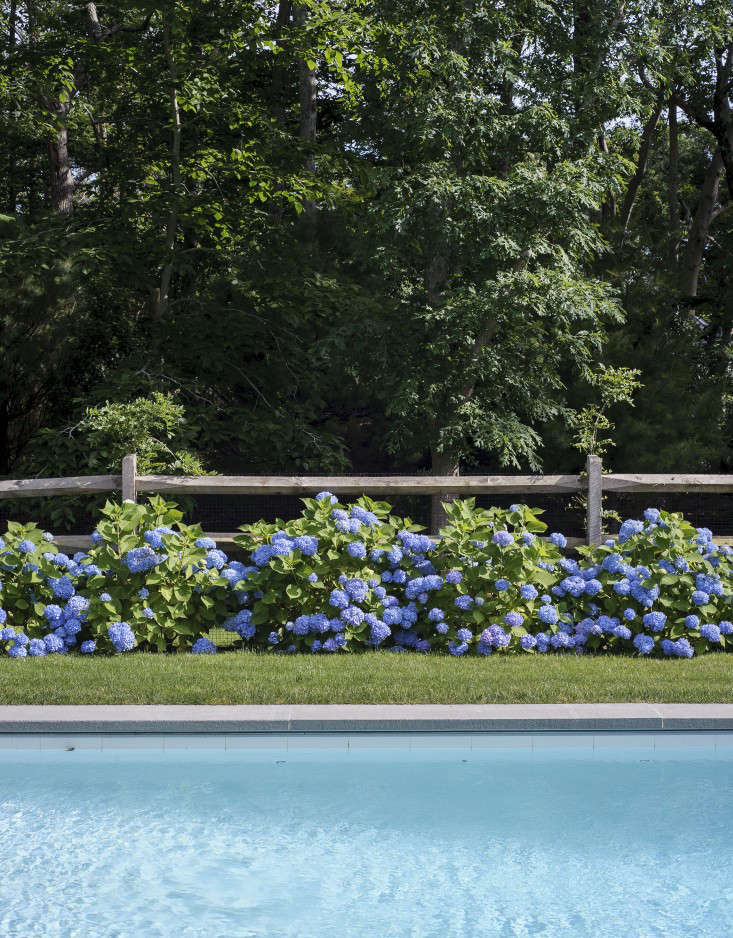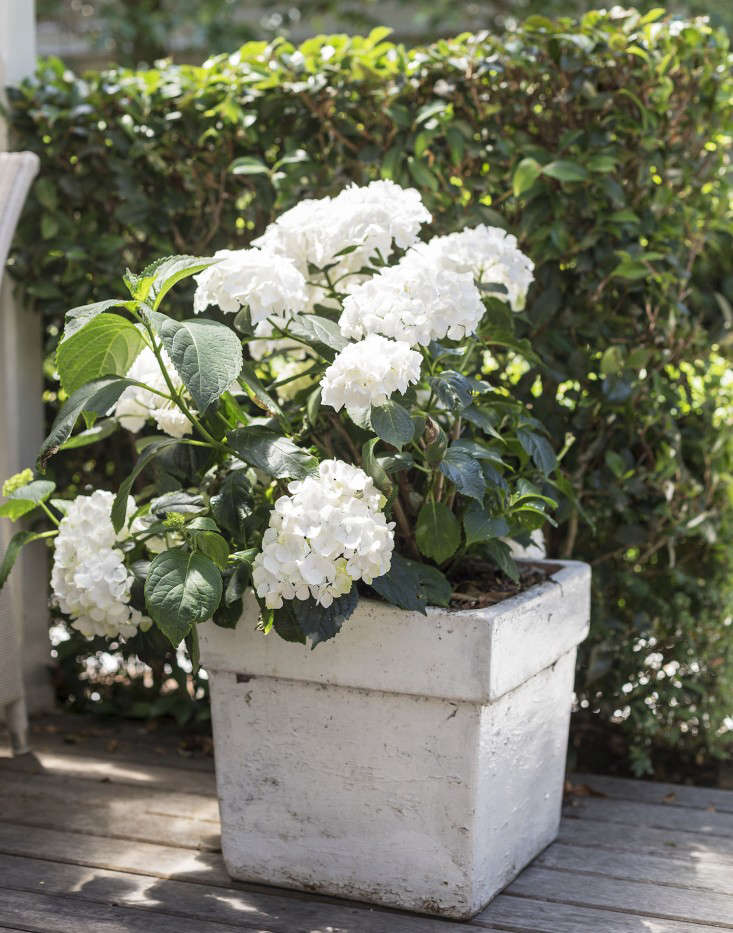Hydrangea; Hydrangea macrophylla: “The Madonna”
The hydrangea isn’t called “the madonna” because it resembles the parent of any religious figure. Nor is it named for the singer Madonna, who in 2011 received a bouquet of these flowers at a press conference and ungratefully whispered, “I absolutely loathe hydrangeas!” Too bad for Madonna, the mike was still on–and the hydrangea community, outraged, came down on her like a sack of bricks. No, the hydrangea is called the madonna as in “an idealized virtuous and beautiful woman.”
Above: Photograph by Justine Hand.
The hydrangea became popular in England’s Victorian era, so it’s no surprise she acquired all the talents of a proper lady. The hydrangea can sing and she can sew: Her elaborate yet charmingly blowsy gown of white, pink, or blue petals captivates the eye. A short shrub laden with generous pom-pom blossoms, the mophead hydrangea steals the show without for a moment presuming to overbear.
Above: Photograph by Matthew Williams.
Another virtue of the hydrangea: She always shows up on time. Some varieties bloom not only once but twice a year, in spring and fall. She’s also flexible and accommodating, happy to switch her attire to suit a different occasion. You can change the color of your hydrangea blossoms from pink to blue and, if you so desire, back to pink again.
Above: Photograph by Sara Barrett for Gardenista.
Cheat Sheet
- Naked hydrangea shrubs look sad in winter; shield them by planting evergreens nearby.
- Some like ’em pink. To change the color of hydrangea flowers, amend your soil to make it more alkaline (for pink) or acidic (for blue).
- Space shrubs from 3 to 10 feet apart to give them plenty of room to flop.
Keep It Alive
- Versatile; will tolerate full sun or partial shade.
- Hardy in zones 2,4,5,6,7,8, and 9.
- In colder climates, mulch heavily before winter to protect the roots.
Above: Photograph by Justine Hand.
This outdoor plant goes beyond the call of duty, making wonderful indoor centerpieces and adornments. And it’s easily dried, whether you want to retain the original color or let it turn a shade of honey brown.
Read More:
Above: Photograph by Matthew Williams.
N.B.: Read more about Shrubs: A Field Guide and browse our Garden Design 101 guides for tips on more summer garden plants: Foxglove 101, Alyssum 101, and Tomatoes 101, to name a few.

















Have a Question or Comment About This Post?
Join the conversation (0)